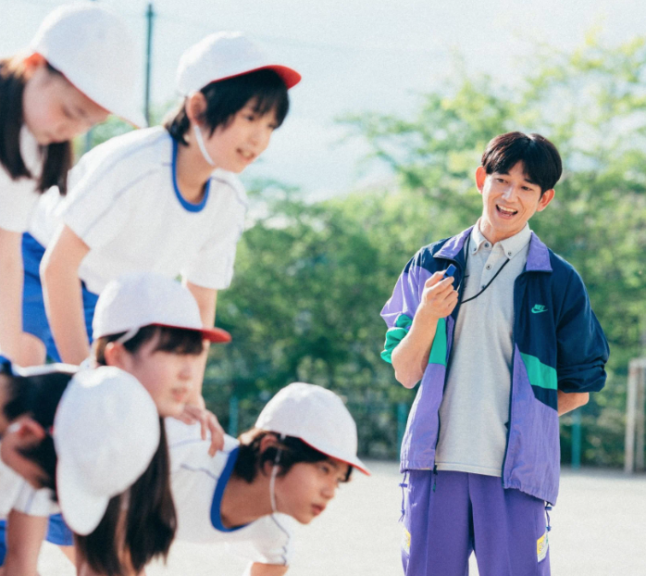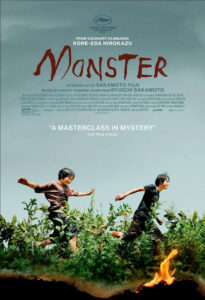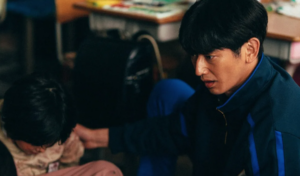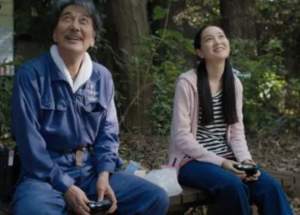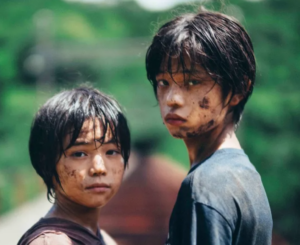Directed by Hirokazu Koreeda | Written by Yûji Sakamoto | 126 min | ▲▲▲▲△
Hirokazu Koreeda, or Kore-eda, is the veteran Japanese filmmaker behind art house hits Broker and Shoplifters, two movies I liked in parts, but too often found they felt dramatically underwhelming, meandering character studies that gradually reveal truths but demand a lot of patience getting there.
Here, working with a different screenwriter, his filmmaking skill prioritizing an assembly of scenes around character rather than forward momentum is a lot more effective. Monster takes the Rashomon approach, telling its tale by stepping back and showing alternate perspectives on the same events. It weaves an impressive tapestry of story over its running time.
Caring single mother, Saori (Sakura Ando), is concerned when her son, Minato (Soya Kurokawa) is behaving strangely and says his teacher, Mr Hori (Eita Nagayama), has been violent with him. This prompts a frustrating series of meetings with the school’s administration where everyone is trying to cover their ass and the principal seems entirely checked out.
About a third of the way through we roll back and see events from Mr Hori’s perspective, which answers a few questions but poses others. The film seems to be exploring the relationships between adults and children and the secrets they keep from each other.
Finally, we spend time with MInato and his friend, Yori (Hinata Hiiragi), who is frequently bullied, and scenes we’d seen before are revisited, sometimes from a different viewpoint or simply a longer cut to reveal something we hadn’t seen before. This final segment is the most sweetly affecting in teasing out the close friendship between the boys and its queer subtext, and Minato’s shame around it.
Occasionally, the filmmakers’ reach exceeds their grasp. I found in the first section many of the scenes in the principal’s office, the meetings with school bureaucracy, feel rushed and/or poorly edited. I wondered if cultural signifiers were simply being lost in translation — it’s unusual to see a school principal cleaning the floors in a Western school, but we see that twice in this film. What’s the filmmaker trying to say in those moments?
But as we go along and double back on many exchanges we’ve already seen, it becomes clear the overlaying of narrative provides depth in a non-linear way. If it’s a challenge to stay with, it’s ultimately rewarding. This is a remarkable film for delivering a complex swath of emotion — it’s about the delicacy human relationships, fundamental truths versus what we say to one another, and the mysteries of children’s lives and what they learn directly and indirectly from adult behaviour, all swaddled in a delicate score by the late, great Ryuichi Sakamoto.
Monster could simply be an ode to that truism: Be kind, because everyone you meet is fighting a private battle.





